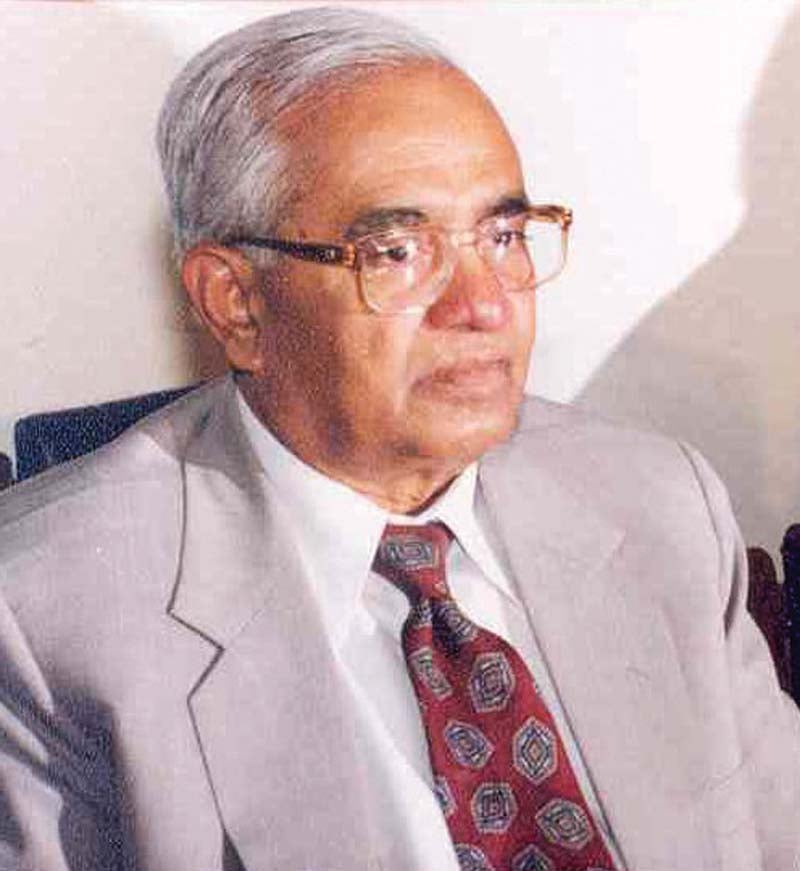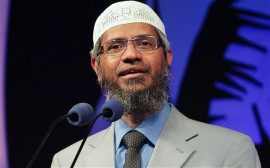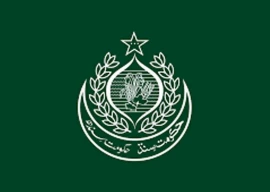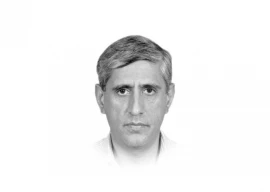
During his battle with a protracted illness, Dr Wahab had been hospitalised several times in the recent past. He remained associated with Institute of Business Administration (IBA), Karachi University (KU) and Mohammad Ali Jinnah University (Maju) over his distinguished career.
Dr Wahab completed his early education in India. He then migrated from India after the Partition and passed his matriculation in 1954. He completed his graduation from Sindh Madrassah Arts and Commerce College, Karachi, in 1958 and, after completing his Masters of Business Administration (MBA) from IBA, he joined the institute as a faculty member. He also went on to obtain another degree from a varsity in Indiana, US. He also had a doctorate degree from the University of British Columbia in Canada. He was appointed as the director of IBA in 1984.

The renowned educationist is regarded as among the few fearless, successful vice-chancellors (VCs) in the history of KU, who brought about positive changes. He served as the acting VC of KU from July 6, 1994, till April 4, 1995, after which he served as the VC till November 9, 1996. He also served as the dean and director of IBA twice: once from June, 1984 till April, 1995 and then from November, 1996 till July, 1999. He finally joined Maju in 2002, where he served as president till his death. Dr Pirzada Qasim Raza Siddiqui, also a former VC of KU, remembers Dr Wahab as a unique personality. "He was the role model for his own self and he knew what he is doing," he says. "His mind was different from normal minds and he had discipline in life, which he implemented in the institutes as well."
Dr Siddiqui, who had known Dr Wahab for the last 50 years, said it was his vision and experience in administrative discipline that made IBA what the institute is today. "It was in the tenure of Dr Irtifaq Ali as KU VC when IBA was made a separate degree-awarding institute," he says, adding that whenever the history of IBA will be written, it will be incomplete without the devoted journey of Dr Wahab. Dr Wahab, in his brief tenure at KU, is remembered to have done a lot of things for the varsity's betterment. The idea to bring in the external examinations in the premises of KU was also his brainchild, which eventually put a full stop on cheating and unfair means of passing the examinations. Dr Wahab's contributions to the university also include the private security for the campus, which is not present at the varsity anymore. Along with making the university greener and the upward mobility of the forestation department of KU, he also earned the credit of initiating the evening programme in 1995. "The evening programme actually helped the varsity," says Karachi University Teachers Society president Dr Shakeel Farooqi. "In finances, the revenue of the university was doubled with the programme. Even the teachers got the opportunity to increase their sources of income."
According to Farooqi, it was due to Dr Wahab's effective, disciplined and punctual attitude that a lot of students and teachers started various campaigns against him, which resulted in his ultimate removal from the position of VC.
IBA faculty member Huma Baqai, who has also worked at KU, talks about the time when she was interviewed by Dr Wahab for a job at KU. "He knew the value of time and used to consider education an essential service," she says. According to KU VC Prof Dr Muhammad Qaiser, Dr Wahab's academic and administrative services will be remembered forever.
Awards and legacy
His accolades include 'Sitara-e-Imtiaz' awarded by the federal government. The 'Order of the Rising Sun', Japan's second-highest award, was also conferred upon him by the Emperor and Prime Minister of Japan for his distinguished contribution to the education sector.
Dr Wahab has also written a book, titled 'Sarkari Idaro Ki Islah? [Reforms of Public Institutions?]' in Urdu, which was launched in 2014. It was later translated into English.
Published in The Express Tribune, September 7th, 2016.

















COMMENTS
Comments are moderated and generally will be posted if they are on-topic and not abusive.
For more information, please see our Comments FAQ